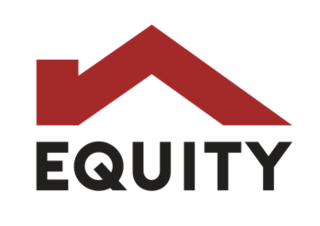Telkom Kenya is an integrated telecommunications provider in Kenya. It was previously a part of the Kenya Posts and Telecommunications Corporation (KPTC) which was the sole provider of both postal and telecommunication services. The company was established as a telecommunications operator in April 1999, after the split of KPTC into the Communications Commission of Kenya (CCK), the Postal Corporation of Kenya (POSTA) and Telkom Kenya. The company is 60 per cent owned by Helios Investment Partners, with the remaining stake held by the members of the public through the Government of Kenya.

The Nairobi Securities Exchange (NSE) was established in 1954 as the Nairobi Stock Exchange, based in Nairobi the capital of Kenya. It was a voluntary association of stockbrokers in the European community registered under the Societies Act in British Kenya. The exchange had 66 listed companies in February 2021.
Safaricom PLC is a listed Kenyan mobile network operator headquartered at Safaricom House in Nairobi, Kenya. It is the largest telecommunications provider in Kenya, and one of the most profitable companies in the East and Central Africa region. The company offers mobile telephony, mobile money transfer, consumer electronics, ecommerce, cloud computing, data, music streaming, and fibre optic services. It is most renowned as the home of M-PESA, a mobile banking SMS-based service.

I&M Bank Uganda, formerly Orient Bank, whose complete name is I&M Bank (Uganda) Limited, is a commercial bank in Uganda which is licensed by the Bank of Uganda (BOU), the central bank and national banking regulator.

James Mwangi CBS is a Kenyan accountant, career banker, businessman, and entrepreneur. He is the current Group Managing Director and Group Chief Executive Officer of Equity Group Holdings Plc, the banking conglomerate with one of the largest customer bases on the African continent, over 14 million as of December 2019.

Equity Bank Tanzania Limited, is a commercial bank in Tanzania, the second-largest economy in the East African Community. It is licensed by the Bank of Tanzania, the country's central bank and national banking regulator. The bank is a member of the Equity Group Holdings Limited, a large financial services conglomerate, headquartered in Nairobi, Kenya, with subsidiaries in Kenya, Rwanda, South Sudan, Tanzania, Uganda, Democratic Republic of the Congo and a representative office in Ethiopia.

Lake Turkana Wind Power Project (LTWP) is a wind farm in Kenya. It is located in Loiyangalani District, in Marsabit County, approximately 545 kilometres (339 mi) by road north of Nairobi, Kenya's capital city. The wind farm covers 160 square kilometres and has a capacity of 310 MW, enough to supply one million homes. It comprises 365 wind turbines, each with a capacity of 850 kilowatts. The associated overhead electric grid distribution system and a high voltage substation that connect it to the national grid.

This article describes energy and electricity production, consumption, import and export in Kenya. Kenya's current effective installed electricity capacity is 2,651 megawatts (MW), with peak demand of 1,912 MW, as of November 2019. At that time, demand was rising at a calculated rate of 3.6 percent annually, given that peak demand was 1,770 MW, at the beginning of 2018. Electricity supply is mostly generated by renewable sources with the majority coming from geothermal power and hydroelectricity.
Despite its high potential for wind energy generation, wind power in Kenya currently contributes only about 16 percent of the country's total electrical power. However, its share in energy production is increasing. Kenya Vision 2030 aims to generate 2,036 MW of wind power by 2030. To accomplish this goal, Kenya is developing numerous wind power generation centers and continues to rely on the nation's three major wind farms: the Lake Turkana Wind Power Station, the Kipeto Wind Power Station, and the Ngong Hills Wind Farm. While these wind power stations are beneficial to help offset fossil fuel usage and increase overall energy supply reliability in Kenya, project developments have also negatively impacted some indigenous communities and the parts of the environment surrounding the wind farms.

Most of Kenya's electricity is generated by renewable energy sources. Access to reliable, affordable, and sustainable energy is one of the 17 main goals of the United Nations’ Sustainable Development Goals. Development of the energy sector is also critical to help Kenya achieve the goals in Kenya Vision 2030 to become a newly industrializing, middle-income country. With an installed power capacity of 2,819 MW, Kenya currently generates 826 MW hydroelectric power, 828 geothermal power, 749 MW thermal power, 331 MW wind power, and the rest from solar and biomass sources. Kenya is the largest geothermal energy producer in Africa and also has the largest wind farm on the continent. In March 2011, Kenya opened Africa's first carbon exchange to promote investments in renewable energy projects. Kenya has also been selected as a pilot country under the Scaling-Up Renewable Energy Programmes in Low Income Countries Programme to increase deployment of renewable energy solutions in low-income countries. Despite significant strides in renewable energy development, about a quarter of the Kenyan population still lacks access to electricity, necessitating policy changes to diversify the energy generation mix and promote public-private partnerships for financing renewable energy projects.

TransCentury Limited is an infrastructure company whose stock is "listed on the Nairobi Securities Exchange (NSE) with three divisions across 14 countries in East, Central and Southern Africa".
Old Mutual Holdings Plc, Formally known as UAP Holdings Limited, is an investment, retirement, and insurance group that operates mainly in Eastern Africa. UAP Holdings is one of the leading insurance and financial services groups in eastern Africa with a network of branches and operational subsidiaries spread across the greater eastern and central Africa regions.

Equity Group Holdings Limited (EGHL), formerly Equity Bank Group, is a financial services holding company based in the African Great Lakes region. EGHL's headquarters are in Nairobi, Kenya, with subsidiaries in Kenya, Uganda, Tanzania, South Sudan, Rwanda, Democratic Republic of the Congo and a representative office in Ethiopia.
M-Kopa is an African connected asset financing platform that provides underbanked customers in Africa to essential products including solar lighting, televisions, fridges, smartphones & financial services. M-Kopa was launched commercially in 2012 and is headquartered in Nairobi. The company is currently operating in Kenya, Nigeria and Uganda.
UAP Old Mutual Group is a financial services conglomerate that maintains its headquarters in Kenya, with subsidiaries in Uganda, Tanzania, South Sudan, Rwanda and the Democratic Republic of the Congo.
Loiyangalani–Suswa High Voltage Power Line is a high voltage electricity power line in Kenya, connecting the high voltage substation at Loyangalani, in Marsabit County, to another high voltage substation at Suswa, in Narok County.
The Kenya Standard Gauge Railway is a railway system that will connect Kenyan cities, and link the country to the neighboring country of Uganda, and through Uganda, to South Sudan, the Democratic Republic of the Congo, Rwanda, and Burundi. There are also plans to link to Addis Ababa, in neighboring Ethiopia to the north. The first segment, between Mombasa and Nairobi, opened passenger rail service in June 2017, and freight rail service in January 2018. Other segments are under construction or planned. The new Standard Gauge Railway (SGR), is intended to replace the old, inefficient metre-gauge railway system.

The Kenya Coast Guard Service is a specialized maritime force of the Republic of Kenya, responsible for law enforcement on national waters, including on the oceans, lakes and rivers. The force is mandated to maintain maritime safety, security, pollution control and sanitation. It is also responsible for apprehending and prosecuting offenders.









